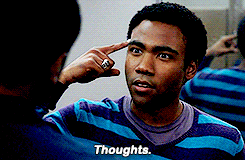One of the things I love about working in PR and communications is that the function often catches marketing work that isn’t neatly categorizable in other parts of the marketing mix. In the past decade, I’ve seen PR handle everything from social media to account-based marketing to podcasts to content marketing to influencers.
An emerging similar-but-different responsiblity I’ve been seeing in job descriptions and freelance briefs, however, is a marketing buzzword that fills me with dread: community. This is a subject on which I have many…
A community, by definition is a group of people that share something. It might be a characteristic, a language, a geographical home. But to me, on a human level — a community is united by action. Communities band together when a neighbor needs help. Communities give each other a sense of belonging or purpose. Communities are built on genuine relationships.
“Community” was a word hijacked by companies and marketers to mean online gathering places. “Community management” became a commodity to sell.
And though it feels tempting to blame the mutation of the term on technology, the origins go farther back, and would be better explained by an academic. In college, I worked in internships where as a “community associate” I begged cafes and local establishments to place free screening vouchers by the coffee sugar. “Community relations” jobs for politicians, sports teams and local businesses meant an entry level person dropped branded tchotchkes off at the town’s annual block party.
Early stage startups salivate at the term, community. They hire people to “create” a community based on a taped-together product launched in order to fail fast/forward, find product/market fit, and provide proof-of-concept so that a VC finds them more legitimate.
They read other founder’s LinkedIn posts about how brand Z used community to 10X their revenue with a newsletter community. They watch a Lenny video. They see what they perceive to be lesser than brands see organic growth from referrals.
But not everything deserves its own community.
A shared passion for a product comes from people discovering the product works. They want to connect with others about the shared problem they have that the product solves. And these connections, conversations and community — they cannot be manufactured. They can’t be turned on as soon as you set up a Discord.
You have to do the work to understand your customer, what value you can bring that combines yes, a good product, alongside actual value from participating in said community.
I think about the communities I participate in as a consumer: Several non-official Peloton Facebook/Discord Groups. A Slack of like-minded PR professionals. Media-group driven Discords. Some of them are run professionally, and require a paid membership. Some are run by volunteers.
But, they’re sustained by the people who genuinely show up not because they love the sponsor, but love what the product enables them to do: Feel better. Read better. Eat better. And even in web 2.0, I participated too; it was basketball Twitter that led me to my husband, and tech journalism Twitter enabled me to do my job.
And these communities are changing as social media dies. Fragmentation is coming, and is already here. The age of simply creating a Facebook Group to grow is ending.
When a leader thinks simply “creating” a community can solve a business problem, it’s a red flag. A community doesn’t exist without action and investment. When some think of community, they expect it to bear fruit immediately, but starting a community is actually buying an empty lot and planting seeds.
And I am hoping that marketing, PR or social teams can stop feeling like they have to promise they can create a community in order to survive. But what I hope for is that leaders understand that the new normal of building community isn’t something you just “turn on to get the earn on.”
(Yes, this is a real sentence I heard an adult in technology say about communities. I apologize for the cringe.)
Happy 2023 to you all, and thank you for reading and subscribing! If you’re new here, welcome.
To end, I like to share a couple of great reads for PRs and a plug for a peer. Reach out to them if you’re interested in working with them!
I can’t stop thinking about this piece, especially as someone who tells stories for a living: Beware the ‘Storification’ of the Internet
This… I just felt for Neal here. 🥱When the client wants boring interviews.
Shameless self plug: I’ll be in New York Jan. 17-19. Let me know if you’d like to get together for a coffee to talk shop and exchange notes.
Marketing people you should know
Today, I’m featuring Jennifer Acree and Cassie Lawrence of JSA+Partners. They are strategic communications experts in consumer tech, digital media, and esports and gaming. Their predictions for PR in 2023:
With our work in digital entertainment, creator economy and gaming, we believe the lines will continue to blur. Reviving tried-and-true IP has become a go-to tactic and we’ve seen gaming IP leveraged more in hopes of roping in devoted fanbases. Additionally, we predict that the metaverse will begin to reach more mainstream audiences. A telltale sign of continued growth in this space comes from widespread adoption by big name consumer brands in a variety of verticals including traditional sports, fashion brands, and even toy companies.




